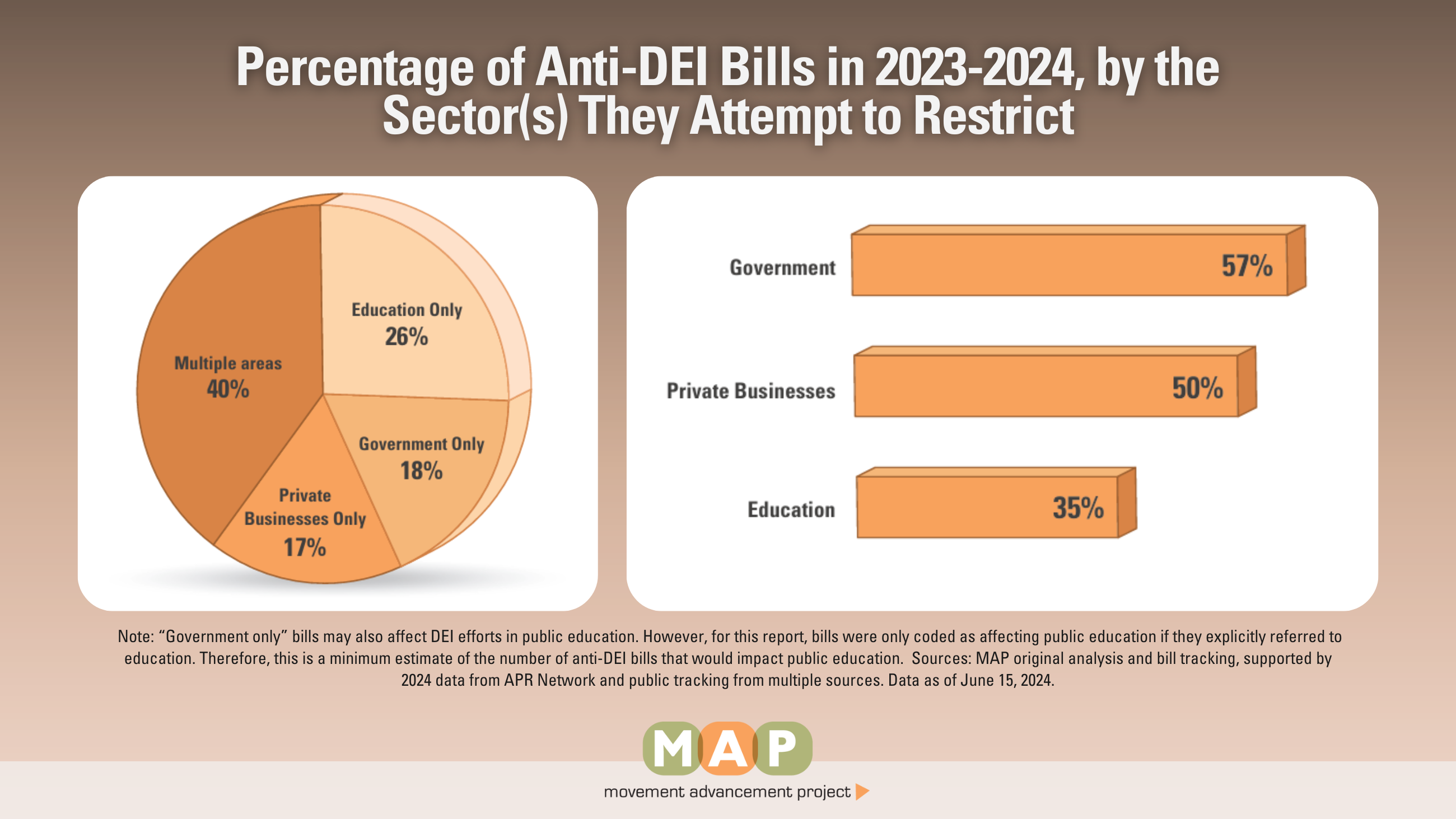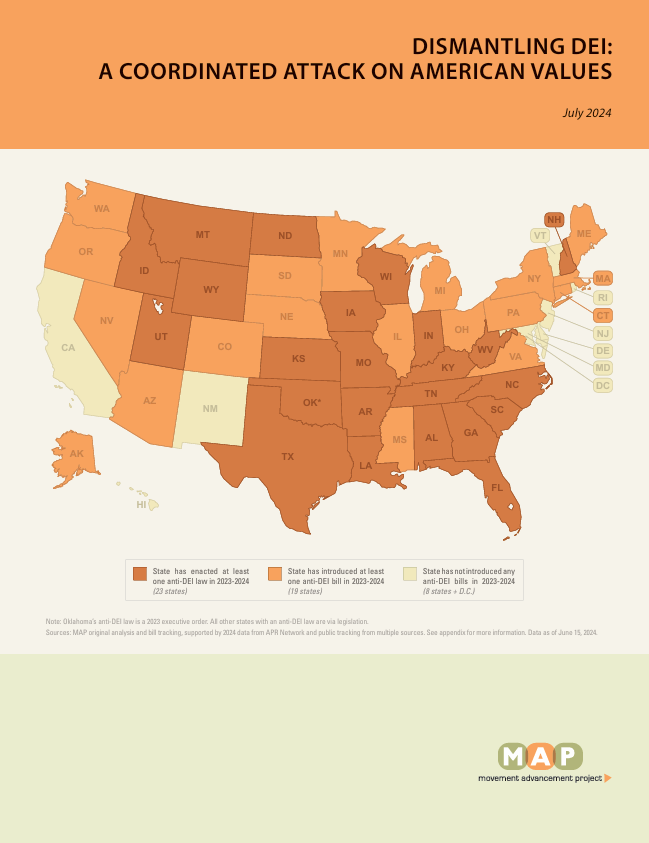"Dismantling DEI: A Coordinated Attack on American Values" [PDF]Download
From state legislatures and court houses to Congress, universities, and business board rooms, Diversity, Equity, and Inclusion (DEI) initiatives are under attack in the United States. Far-right extremists and conservative lawmakers are politicizing these initiatives in an effort to regress back to a time when communities of color, women, LGBTQ people and others were marginalized and silenced. In a first of its kind report, Dismantling DEI: A Coordinated Attack on American Values,
breaks down the strategies opponents have used to target DEI within government, education, and the private sector, and further demonstrates the harmful impacts these calculated, widespread attacks have upon our communities. MAP's new
report analyzes state bills introduced over the past two years and finds that at least 42 states have introduced over 440 bills attacking DEI in a variety of ways, and over half (23) of those states have enacted at least one such law or policy over that time frame. The report also tracks efforts to pass such bills in Congress and to challenge DEI in the courts. Although they may seem isolated, these coordinated attacks purposefully downplay experiences of discrimination and exclusion that many Americans face in the halls of government, schools, and places of business. In Government
- Since 2023, at least 256 bills have been introduced in the states attacking DEI in different government settings. Today, 20 states now have at least one law that restricts or bans DEI practices in different government settings.
In Education
- Since 2023, at least 157 bills explicitly attacking DEI in education have been introduced across 34 states. Today, at least 15 states have enacted these bans or restrictions into law.
In Business
- Since 2023, at least 226 bills explicitly attacking DEI or ESG in private businesses have been introduced across 36 states. Today, at least 16 states have enacted such laws.
- A 2023 Morning Consult survey of business leaders showed that 24% of respondents had discontinued or modified a training program and 12% reported they reduced the headcount for DEI staff functions.
 The impact of attacks on DEI initiatives on students, employees and the public at large cannot be understated. The report shows clear harms already ensuing, such as the closures of university centers for students of color or LGBTQ students, and the loss of hundreds of jobs. These attacks, based on false narratives designed to hijack the public’s understanding and support for DEI, reduce the ability to foster inclusive and equitable environments, while often confusing those who actually support DEI-related efforts. This unprecedented wave of anti-DEI attacks is taking place as the American population is changing demographically, becoming more diverse than recorded in previous decades. And as opponents attempt to redefine these words and morph their intent into politicized narratives, the basic definition of these terms must be remembered. Recognizing differences, ensuring fairness, and creating a sense of belonging are practices necessary to address the needs of an ever-diversifying public.
The impact of attacks on DEI initiatives on students, employees and the public at large cannot be understated. The report shows clear harms already ensuing, such as the closures of university centers for students of color or LGBTQ students, and the loss of hundreds of jobs. These attacks, based on false narratives designed to hijack the public’s understanding and support for DEI, reduce the ability to foster inclusive and equitable environments, while often confusing those who actually support DEI-related efforts. This unprecedented wave of anti-DEI attacks is taking place as the American population is changing demographically, becoming more diverse than recorded in previous decades. And as opponents attempt to redefine these words and morph their intent into politicized narratives, the basic definition of these terms must be remembered. Recognizing differences, ensuring fairness, and creating a sense of belonging are practices necessary to address the needs of an ever-diversifying public.
Recommended citation: Movement Advancement Project. July 2024.
Dismantling DEI: A Coordinated Attack on American Values.
www.mapresearch.org/2024-DEI-report. Accessed [date of access].



